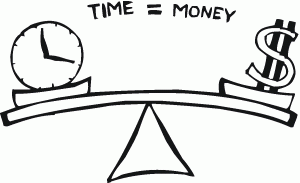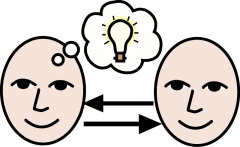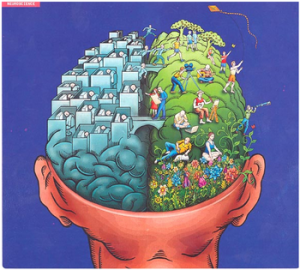I’ve noticed an interesting quality about entrepreneurs, which is their ability to operate and control many different areas of focus, rather than specializing in one discipline. Unlike large companies, entrepreneurs don’t have the luxury of specializing personnel to specific disciplines. Rather, entrepreneurs must focus on a vast multitude of different skill areas. This diversity of knowledge, and practise (tasks, activities, projects) has profound implications. Entrepreneurs who master the following acts, will guide their firms to riches and dreams to reality.
Act 1. Entrepreneurs need to be able to operate at least a moderate skill within each discipline. While some disciplines are harder than others, the more complex and inherently difficult that discipline is to learn the more valuable it is. Entrepreneurs who posses and acquire valuable skills naturally become more successful. In a pinch, they can sell their skills. If they invest their skills in their enterprise, they stand to reap the full value of that skill, not simply the market value of the skill’s labour. While it is true that inherently valuable skills will save entrepreneurs from having to purchase those skills from others, the real benefit comes from reaping the rewards of adapting the skill towards a valuable purpose withing the business. This act alone does not guarantee success. Being too specialized means entrepreneurs run the risk of missing an important link, say, sales, or marketing, or distribution, which defeats the whole point.
Act 2. Successful entrepreneurs will devote time to the most valuable and meaningful activities, and delegate low-value activities to others. Any worker who earns the fruits of their labour independently, rather than as a staffer with a fixed wage in a company, inherently needs to invest time in order to reap the benefits of those investment.
Act 3. Entrepreneurs, and sales  people (employee-entrepreneur hybrids) understand the value of their time, become highly conscious of it, and are motivated to conserve time. These self-employed individuals will invest time in planning. They may even invest time in inventing solutions that save them even more time (cough! longboard. Cough cough…)
people (employee-entrepreneur hybrids) understand the value of their time, become highly conscious of it, and are motivated to conserve time. These self-employed individuals will invest time in planning. They may even invest time in inventing solutions that save them even more time (cough! longboard. Cough cough…)
Act 4. Successful entrepreneurs will invest time reviewing the raw data, compiling that information and making an informed decision about the direction they take their business. They will invest their time in exploring the market, exploring relationships, networking, investigating opportunities and listening to proposals.
invest time reviewing the raw data, compiling that information and making an informed decision about the direction they take their business. They will invest their time in exploring the market, exploring relationships, networking, investigating opportunities and listening to proposals.
Act 5. A. Entrepreneurs will learn from others, emulate the success of others by applying the same principles and lessons, listening to the wisdom of others, especially unique, obscure and isolated ideas that are not mainstream. They will combine ideas or expand on them. They will tinker, copy, create, draw, imagine, vision and ideate. Do you have a problem? Generating ideas about how to solve it (i.e brainstorming) is
emulate the success of others by applying the same principles and lessons, listening to the wisdom of others, especially unique, obscure and isolated ideas that are not mainstream. They will combine ideas or expand on them. They will tinker, copy, create, draw, imagine, vision and ideate. Do you have a problem? Generating ideas about how to solve it (i.e brainstorming) is  the fastest and most effective way to improving your situation. But this works if, and only if Act 5. B. is accomplished.
the fastest and most effective way to improving your situation. But this works if, and only if Act 5. B. is accomplished.
5. B. Successful entrepreneurs are actively doing something right now. Not vaguely sometime in the future. Not later, tomorrow or sometime. They are planning and acting on their goals actively, every day,  every month of every year. It’s that simple. Work on your ideas. Get what you want. Act Now.
every month of every year. It’s that simple. Work on your ideas. Get what you want. Act Now.
What happens when you get what you want? Let’s just say this is a never-ending story, because after all, success is relative. 
